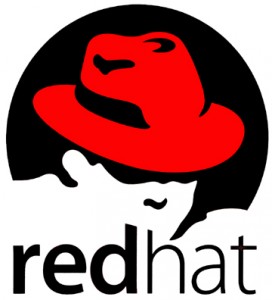Red Hat today announced the Beta release of Red Hat Enterprise Virtualization 3.0, the next-generation version of the company’s end-to-end server virtualization and desktop virtualization solutions.
 Red Hat Enterprise Virtualization for Servers uses the hardened Red Hat Enterprise Linux kernel as its security foundation. Red Hat Enterprise Linux and Red Hat Enterprise Virtualization both leverage SELinux, developed in conjunction with the United States Department of Defense and National Security Agency along with vendors such as IBM, HP, and MITRE. SELinux ensures isolation between virtual machines and between each machine and the Red Hat Enterprise Virtualization Hypervisor.
Red Hat Enterprise Virtualization for Servers uses the hardened Red Hat Enterprise Linux kernel as its security foundation. Red Hat Enterprise Linux and Red Hat Enterprise Virtualization both leverage SELinux, developed in conjunction with the United States Department of Defense and National Security Agency along with vendors such as IBM, HP, and MITRE. SELinux ensures isolation between virtual machines and between each machine and the Red Hat Enterprise Virtualization Hypervisor.
The Red Hat Enterprise Virtualization 3.0 Beta previews several enhancements, including:
• Red Hat Enterprise Virtualization Manager is now a Java application running on JBoss Enterprise Application Platform on Red Hat Enterprise Linux
• An updated KVM hypervisor based on the latest Red Hat Enterprise Linux 6
• High performance and scalability levels, supporting up to 128 logical CPUs and 2TB memory for hosts, and up to 64 vCPUs and 2TB memory for guests
• A user portal that allows end users to provision virtual machines, define templates and administer their own environments
• A RESTful API that allows all aspects of Red Hat Enterprise Virtualization to be managed and configured programmatically
• New multi-level administrative capabilities, improving product functionality for very large deployments
• New local storage capabilities
• An integrated and embedded reporting engine allowing for analysis of historic usage trends and utilization reports
• SPICE WAN optimization and enhanced performance including dynamic compression and automatic tuning of desktop effects and color depth. The new version of SPICE also features enhanced support for Linux desktops.
Desktop Virtualization
Desktop virtualization makes it possible for IT to deliver desktops and apps straight from the datacenter to any device, making device management much easier and more secure.
According to a recent report from Citrix Systems, Desktop Virtualization is playing a key part in the “bring your own device (BYO)” trend that many enterprises are experiencing. According to the Citrix study, sixty two percent of surveyed organizations already invested or plan to invest in desktop virtualization. Eighty percent of those organizations intend to leverage their desktop virtualization investment to support employee-owned devices and BYO.
With Red Hat Enterprise Virtualization for Desktops, complete desktop environments are hosted as virtual desktops on servers located in a centralized datacenter. Users connect to these virtual desktops using either inexpensive thin clients or repurposed PCs. The solution utilizes SSL Encryption to ensure secure data transmission between virtual desktops and the devices used to access them. Virtual desktops can have up to 16 virtual CPUs, maximizing performance, while memory page sharing and ballooning help maximize the number of virtual desktops that can be hosted on a single hypervisor.
“Red Hat Enterprise Virtualization 3.0 is expected to provide customers with many exciting new features and capabilities, previewed in today’s Beta,” said Navin Thadani, senior director, Virtualization Business at Red Hat. “One of the most significant new features of the release is the ability to deploy the management server on Linux, making it an ideal platform for customers moving away from proprietary solutions.”
Red Hat Enterprise Virtualization 3.0 is currently a private beta for customers, but there will be a public beta following, a company spokesperson told SecurityWeek.














